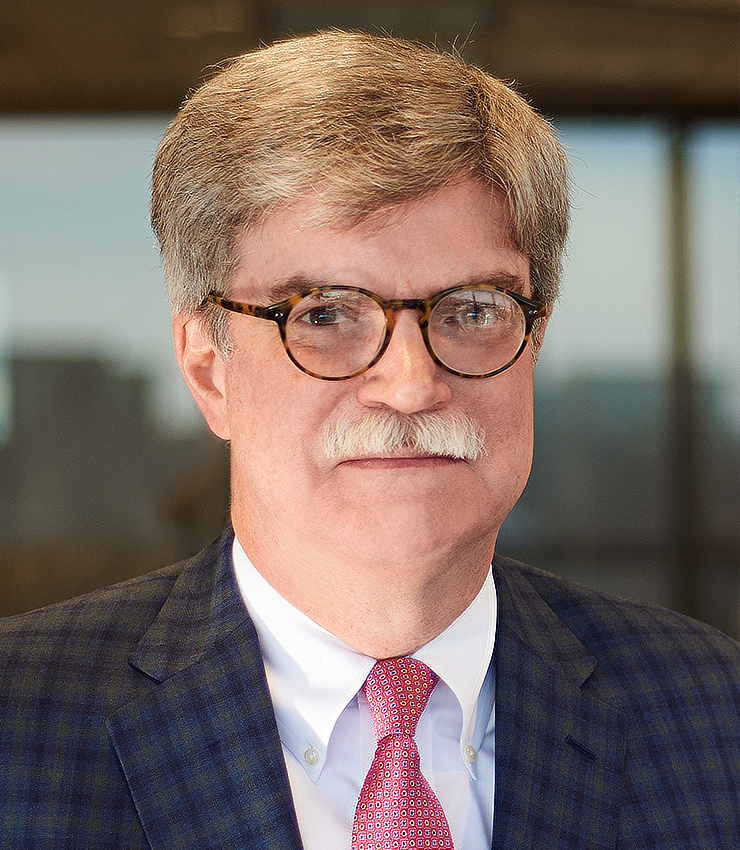The business of law is undergoing sweeping changes, expert says

Lucian Pera
The business and regulation of the practice of law are in the midst of their greatest period of change in more than a century, according to attorney Lucian Pera, who spoke recently at The University of Akron School of Law. Pera’s appearance was part of the Miller Becker Center for Professional Responsibility Distinguished Guest Lecture series. His talk, “Ethics, Lawyering, and Regulation in a Time of Great Change: Field Notes from the (R)evolution,” was based on a law review article he penned by the same name that was published by the South Carolina Law Review.
“An American lawyer from the 1930s transplanted into the 1980s, when I started, would have found the basic architecture of the legal profession broadly similar [to what he was used to]. All of that is looking less and less familiar to me and to lawyers of my generation,” Pera said.
Pera is a partner in the Memphis, Tenn., office of the law firm Adams and Reese LLP. For more than 30 years, he has represented lawyers and law firms and those who do business with lawyers and law firms, on a wide array of issues relating to legal ethics and regulation. Some of these clients are business entities or investors seeking to pierce the monopoly that lawyers hold on the legal profession, Para said. Heather Zirke, director of the Miller Becker Center, said these businesses might be described as “disruptors in the legal services industry.”
“These companies regard the legal services business as a very rich investment opportunity,” Pera said. Enormous amounts of capital are being poured into areas including litigation funding, lead generation, mass torts and the establishment of national consumer law firms. Such firms are envisioned as “gatekeepers” that will essentially collect mass torts cases and farm them out to other lawyers.
Pera explained law firms have been accessing outside capital for years through a two-company model borrowed from the medical-practice world. He offered the real-world example of an immigration law firm that wanted to develop a proprietary software system to automate its workflow. The software developer required some of the money be paid up front. The outside investment went into the software company, not the law firm.
“Ten years ago, I was one of the doubters who thought law is not a business that needs capital,” Pera said. “I don't know if I was right then, but I can see that the need for capital has increased today, mostly as a result of technology.”
Reforms in the lawyer regulatory process are encouraging to Pera. Utah and Arizona authorized limited nonlawyer ownership and fee-sharing in 2020. In both states, the motivation is to increase consumers’ access to needed legal services that are too often unaffordable or unavailable.
In Utah, a business that wants to avoid some of the lawyer regulations can apply to the state Supreme Court for special permission to operate temporarily in what is termed “a sandbox” under supervision of the Utah Office of Legal Service Innovation. The hope is that the nonlawyer-owned businesses will eventually be permitted to graduate from the sandbox and operate in Utah permanently.
Arizona eliminated its prohibition on lawyers sharing fees with nonlawyers and authorized nonlawyers to apply to form law firms to provide legal services. These so-called alternative business structures will operate under a special set of rules.
Other states, in particular Florida and California, are pushing back against these reforms, Pera noted. But he urged the audience not to underestimate the possibility of Utah and Arizona serving as beacons in a nationwide assault on the traditional practice of law.
The American Bar Association’s Center for Professional Responsibility recently bestowed on Pera its highest award, the Michael Franck Professional Responsibility Award. Pera also serves on the Miller Becker Center Advisory Board.
The Miller Becker Center for Professional Responsibility is a nationally recognized academic center dedicated to enhancing public trust and confidence in the legal profession and the judicial system. The Distinguished Guest Lecture Series brings thought leaders in the field of legal ethics to the University of Akron School of Law biannually.
